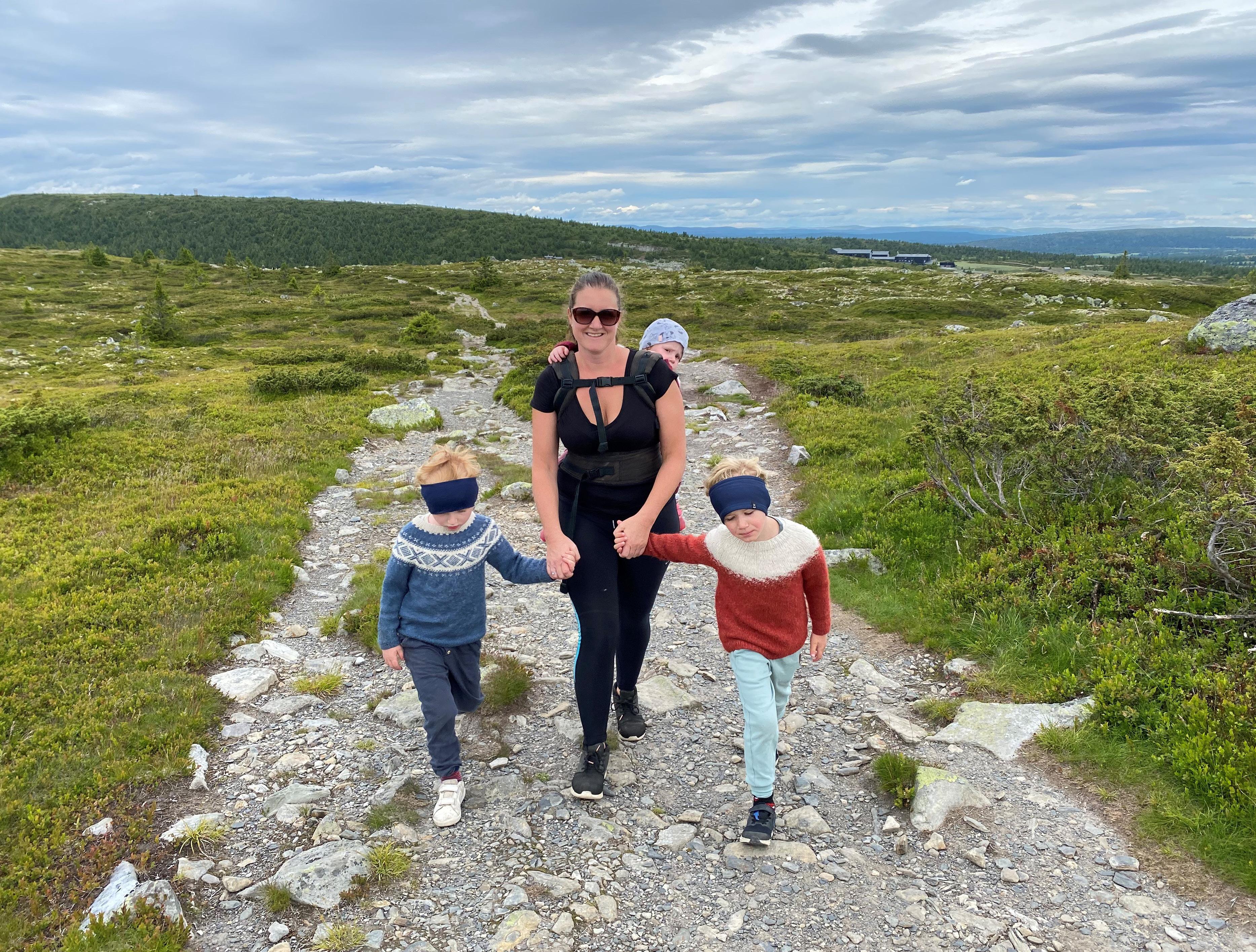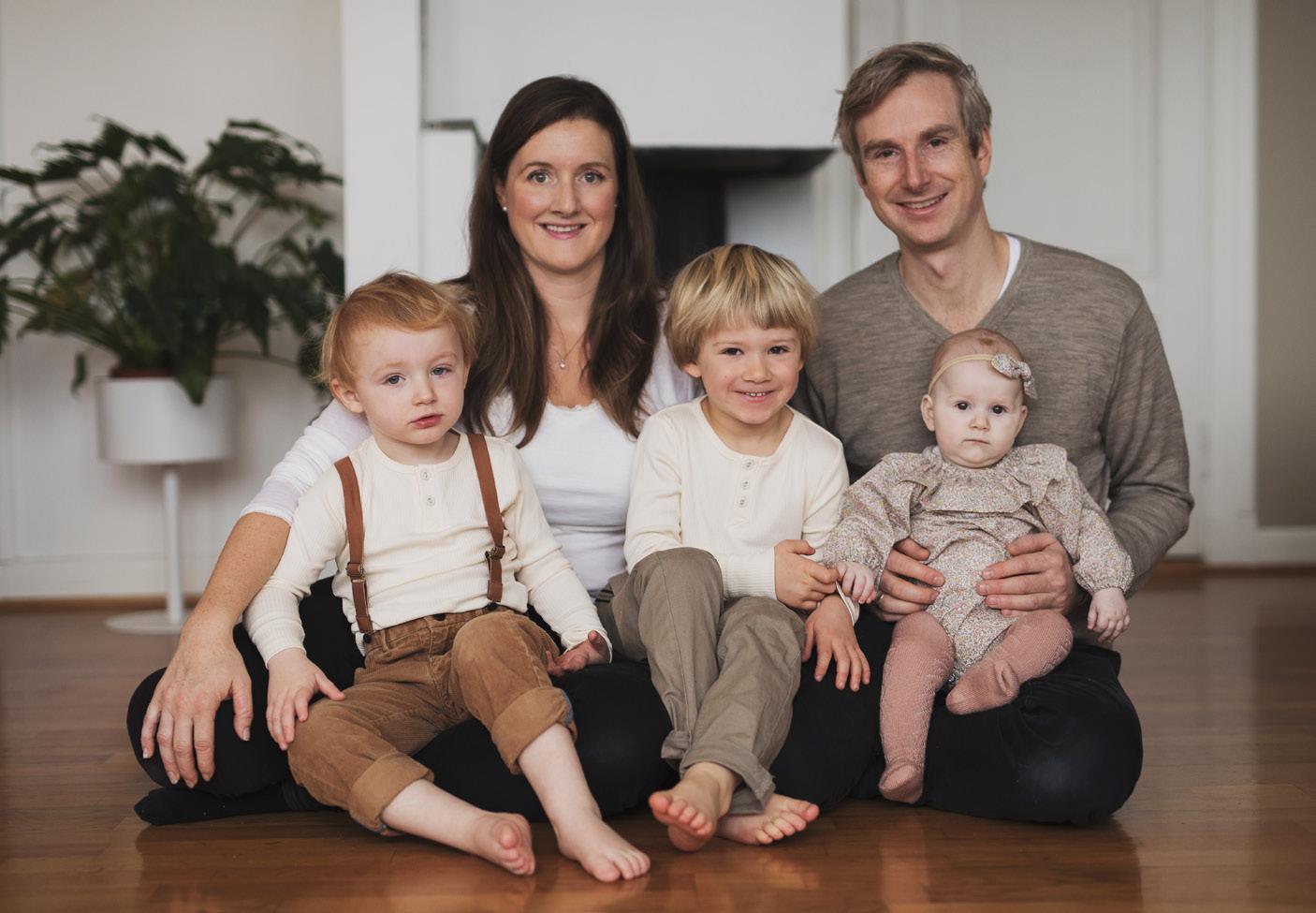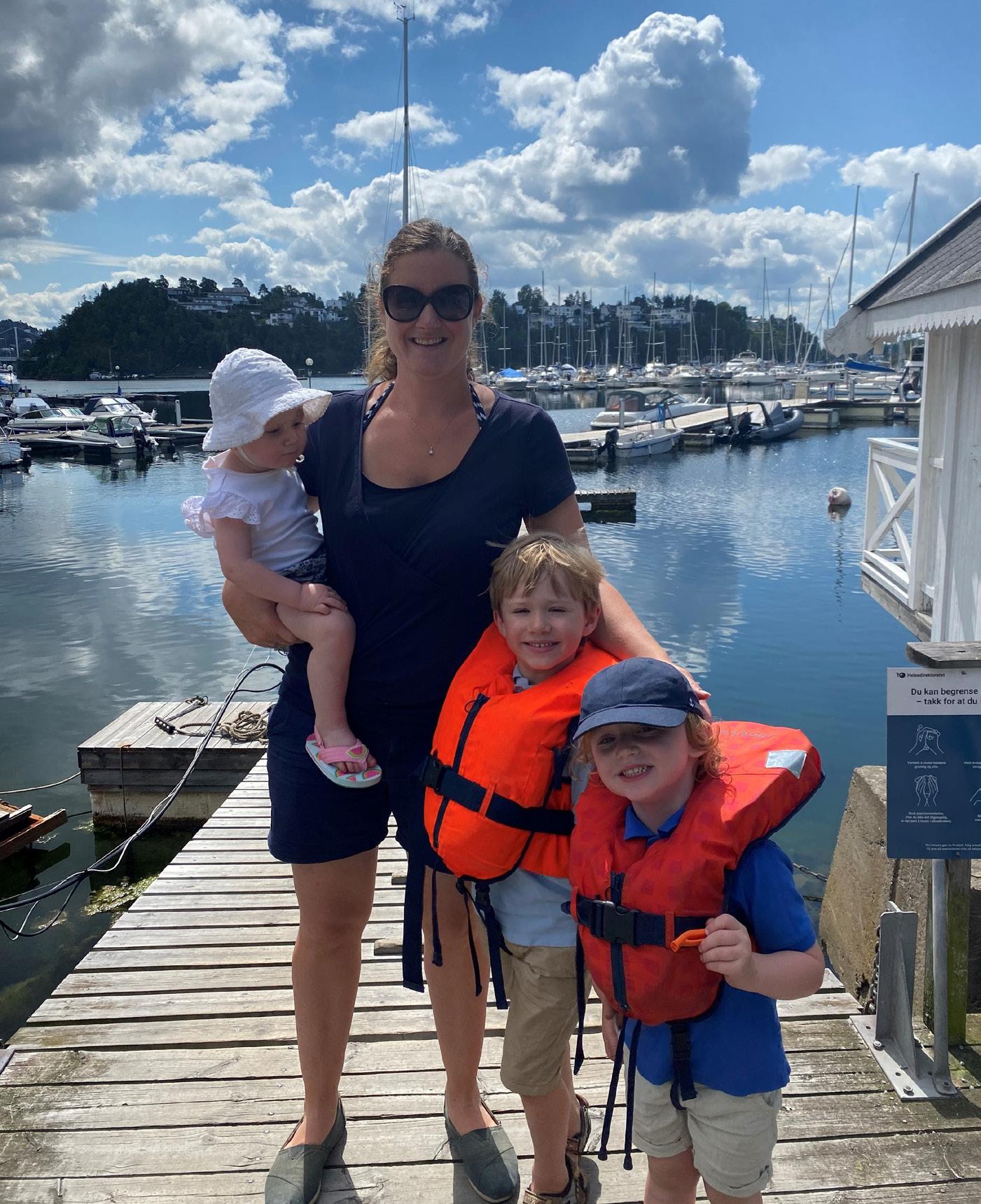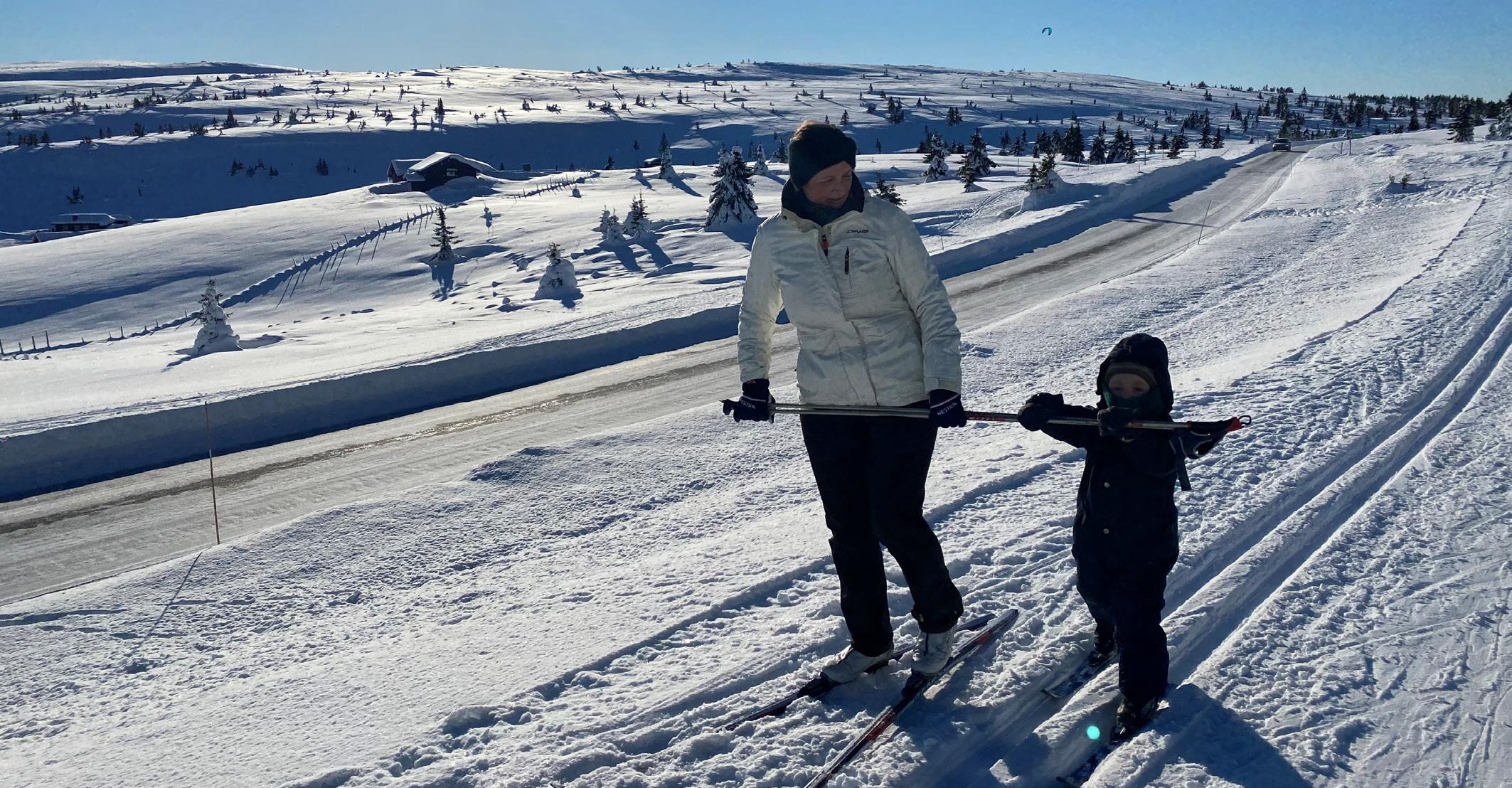
5 minute read
Interview
from VEFF magazine 2 2022
by Veff
Katrine Andresen Roald
Advokat MNA, Parat
Katrine Andresen Roald is the main layer and adviser for VEFF. She works in the legal department at Parat.
I am 37 years old, married to my husband Lennart and we have three children aged 2, 4 and 6 years old. I was born, raised, studied, and still living in Oslo. I work as a lawyer in the negotiation and working life department of the trade union Parat. As a person, once I decide on something, I go all in, whether it’s hobbies, studies, or work.
WHAT KIND OF PROFESSIONAL SKILLS AND WORK EXPERIENCE DO YOU HAVE?
I have a master’s degree in law from the University of Oslo. I finished my studies in 2010 after going straight from high school to law school. I didn’t have a clear idea of what I wanted to work with. I had English contract law and tax law as an elective course, and it really seemed to me that I was going to end up in business law.
But then I joined the Juss-Buss – a student-run legal aid initiative that assists those who cannot afford other legal aid. There I understood that an employment relationship is not like any other contractual relationship. I experienced
employers who kept the passports of the employees, the employees lived in poor conditions and were paid small amounts of cash in wages. After this, it became clear to me that what I wanted was to work with employment law.
When I was offered the opportunity to work in Parat, I felt it had to be the perfect place to work. A trade union that represents a huge range of different worker categories and in all sectors. The first year I worked in the legal department and only assisted with individual cases. Then I started in the negotiation and working life department.
In parallel with my work in Parat, I continued my work to help disadvantaged groups. I developed the Legal Aid Center—a legal aid initiative run by the Church City Mission—from a monthly offer to a weekly service, and I was the general manager there for about 5 years.
WHAT DO YOU DO WHEN YOU’RE NOT AT WORK?
When I am not at work, I spend time with my family. We like to be in the mountains either on foot or on skis – both cross-country skiing and downhill skiing. In addition, we are lucky to live near the sea, so we enjoy being out in our small boat.
If we are on vacation, we go hiking in the mountains or we travel to the United States, where my mother’s family comes from.
A lot of time is also spent on children’s activities. I was very active in children’s sports, as a figure skater, and would like to pass on all the joy that I experienced through sports to my children.
YOUR ROLE AT PARAT
I work as a lawyer in the negotiation and working life department, and I am the negotiation manager for all our official agreements within the NHO area. I assist employee representatives and individual members in matters related to legislation and agreements. As a negotiator, I work with the collective agreements, i.e., what the collective agreement should contain. However, the tariff settlements are only part of the job. In addition, I work a lot with advising on the understanding of the provisions of the collective agreement and the law. How should the wage settlement be carried out? And what about the right to welfare leave? What are the requirements for major reorganizations? What rules apply to working hours? Or what about the main agreements’ provisions on the right to employee representative time and the right to co-determination for employee representatives?
An important part of the job is also to hold courses for both members and employee representatives. We have great variation in the course portfolio and offer courses over several days to employee representatives in topics such as restructuring, presentation technique and working hours. In addition, we have shorter courses and webinars on, for example, pensions and management law. These are open to all members.
A FEW WORDS ABOUT PARAT AND WHAT IT’S LIKE TO WORK THERE
Parat is a politically independent trade union affiliated to the Norwegian Confederation of Trade Unions (YS). We have over 40,000 members in all sectors of working life and organize employees in most professions and industries.
Working in Parat is both varied and exciting. One day may be about a major reorganization, while the next may be about a member who has not received their salary or needs someone to talk to because they are not doing well.
Due to our large secretariat, we also have a good opportunity to be specialized. As responsible for NHO’s official agreements, it gives me ample opportunity to draw lines across the tariff areas and use this to assist our groups.

The wide range of tasks and the good working environment means that 11 years in Parat have gone away faster than I could have ever imagined.
IMPORTANT ISSUES YOU ARE PASSIONATE ABOUT
The task of lawyers is to promote justice and prevent injustice. For me, finding good and fair solutions for our members is one of the things that makes the workday meaningful.
I am also dedicated to ensuring that companies have collective agreements. A collective agreement is an important measure for creating acceptable working conditions and job security. Working to put in place more collective agreements therefore feels extra meaningful to me. Now we in Parat have started with tariff marking. All companies that have a collective agreement in place can place a sticker on their company as a of stamp of quality. We hope this helps to raise awareness of how important it is to trade with businesses where employees are ensured proper pay and working conditions. “I am also devoted to assuring that everyone, regardless of status or life situation, should have access to legal aid. How resourceful you are should not determine what help you get. The union is a good contribution to this, because membership ensures help if ever needed.”











